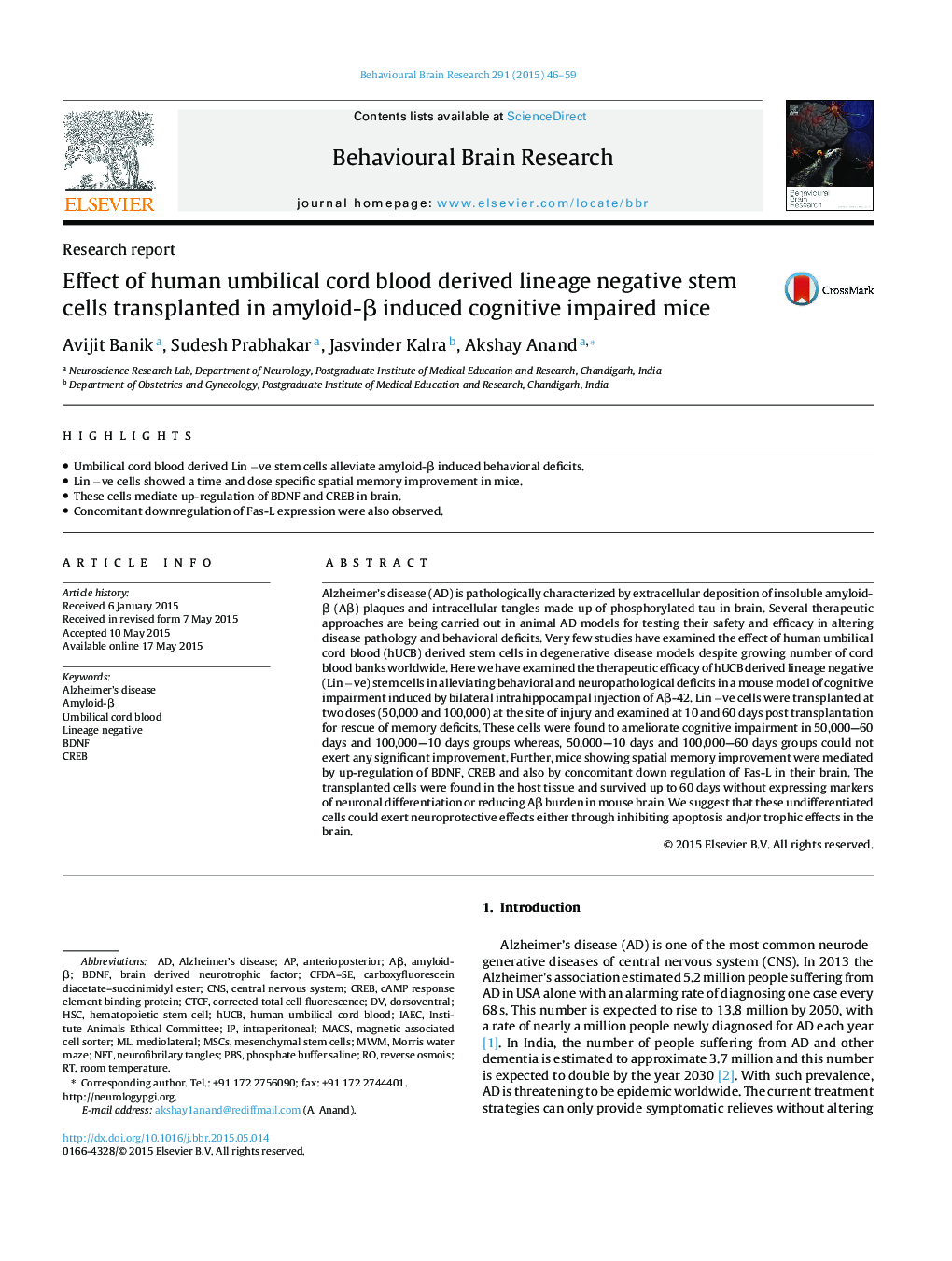| کد مقاله | کد نشریه | سال انتشار | مقاله انگلیسی | نسخه تمام متن |
|---|---|---|---|---|
| 4312375 | 1612941 | 2015 | 14 صفحه PDF | دانلود رایگان |

• Umbilical cord blood derived Lin −ve stem cells alleviate amyloid-β induced behavioral deficits.
• Lin −ve cells showed a time and dose specific spatial memory improvement in mice.
• These cells mediate up-regulation of BDNF and CREB in brain.
• Concomitant downregulation of Fas-L expression were also observed.
Alzheimer's disease (AD) is pathologically characterized by extracellular deposition of insoluble amyloid-β (Aβ) plaques and intracellular tangles made up of phosphorylated tau in brain. Several therapeutic approaches are being carried out in animal AD models for testing their safety and efficacy in altering disease pathology and behavioral deficits. Very few studies have examined the effect of human umbilical cord blood (hUCB) derived stem cells in degenerative disease models despite growing number of cord blood banks worldwide. Here we have examined the therapeutic efficacy of hUCB derived lineage negative (Lin −ve) stem cells in alleviating behavioral and neuropathological deficits in a mouse model of cognitive impairment induced by bilateral intrahippocampal injection of Aβ-42. Lin −ve cells were transplanted at two doses (50,000 and 100,000) at the site of injury and examined at 10 and 60 days post transplantation for rescue of memory deficits. These cells were found to ameliorate cognitive impairment in 50,000—60 days and 100,000—10 days groups whereas, 50,000—10 days and 100,000—60 days groups could not exert any significant improvement. Further, mice showing spatial memory improvement were mediated by up-regulation of BDNF, CREB and also by concomitant down regulation of Fas-L in their brain. The transplanted cells were found in the host tissue and survived up to 60 days without expressing markers of neuronal differentiation or reducing Aβ burden in mouse brain. We suggest that these undifferentiated cells could exert neuroprotective effects either through inhibiting apoptosis and/or trophic effects in the brain.
Journal: Behavioural Brain Research - Volume 291, 15 September 2015, Pages 46–59